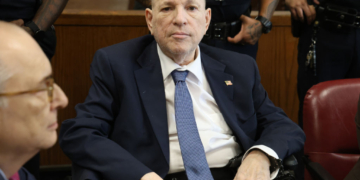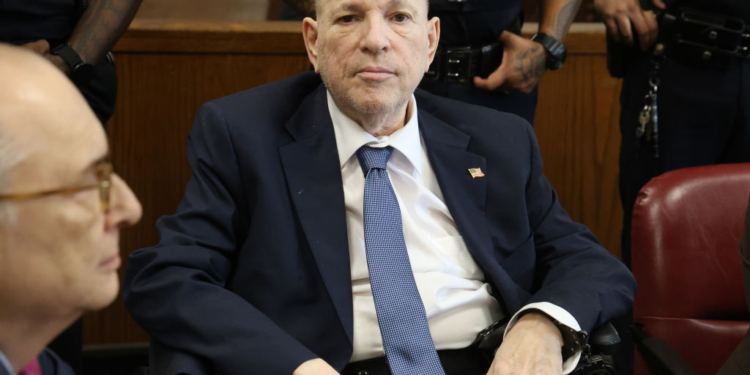When Harvey Weinstein’s retrial takes place this fall, onlookers can expect more alleged rape and sexual abuse victims to testify.
Nicole Blumberg, Manhattan’s Assistant District Attorney, told the judge Tuesday that more women who were not ready to speak up earlier during the 2020 trial are now willing to do so, according to Variety.
“A number of women came forward to indicate they were raped by the defendant in Manhattan,” Blumberg said during court.
She said included is an alleged incident that is a “violent” and “trauma-informed” matter that falls within the statute of limitations.
The prosecution expects to be ready for the retrial by November.
Earlier this year, New York’s highest court ruled in a 4-3 decision that the judge in Weinstein’s 2020 rape trial allowed too many women to testify about allegations that were not part of the case.
The 23-year sentence in New York was reversed. A retrial is expected in the fall.
Arthur Aidala, Weinstein’s lawyer, said the prosecution used “delay tactics” and said the only “relief” Weinstein needs is “time.”
He said Weinstein, a former film producer, is suffering “tremendously” from a variety of medical issues. This included fluid in his heart and lungs, spinal stenosis, macular degeneration in his eyes and diabetes that’s “through the roof.”
The prosecution denied purposely delaying the proceedings and said the they are working “diligently” to have the new witnesses ready to testify.
Weinstein is still in custody due to his Los Angeles conviction.
He was sentenced to 16 years in prison for sexual assault after a 2022 trial.
Since he rejected the extradition request to relocate him to California, he remains in New York.
“At the time the jury was deciding the evidence in California, they were working under the assumption and the belief that he had properly been convicted in New York,” Jennifer Bonjean, the attorney who is handling Weinstein’s California appeal, said. “Now we know that’s not true.”
Three women testified in the New York trial as “prior bad acts witnesses.”
They testified to Weinstein’s pattern of bad behavior and assault.
The New York Court of Appeals ruled their testimony distracted the jury from the trial charge.
That led to the overturned conviction.
“We reaffirm that no person accused of illegality may be judged on proof of uncharged crimes that serve only to establish the accused’s propensity for criminal behavior,” Judge Jenny Rivera wrote in the court’s majority opinion. “It is an abuse of judicial discretion to permit untested allegations of nothing more than bad behavior that destroys a defendant’s character but sheds no light on their credibility as related to the criminal charges lodged against them.”

























